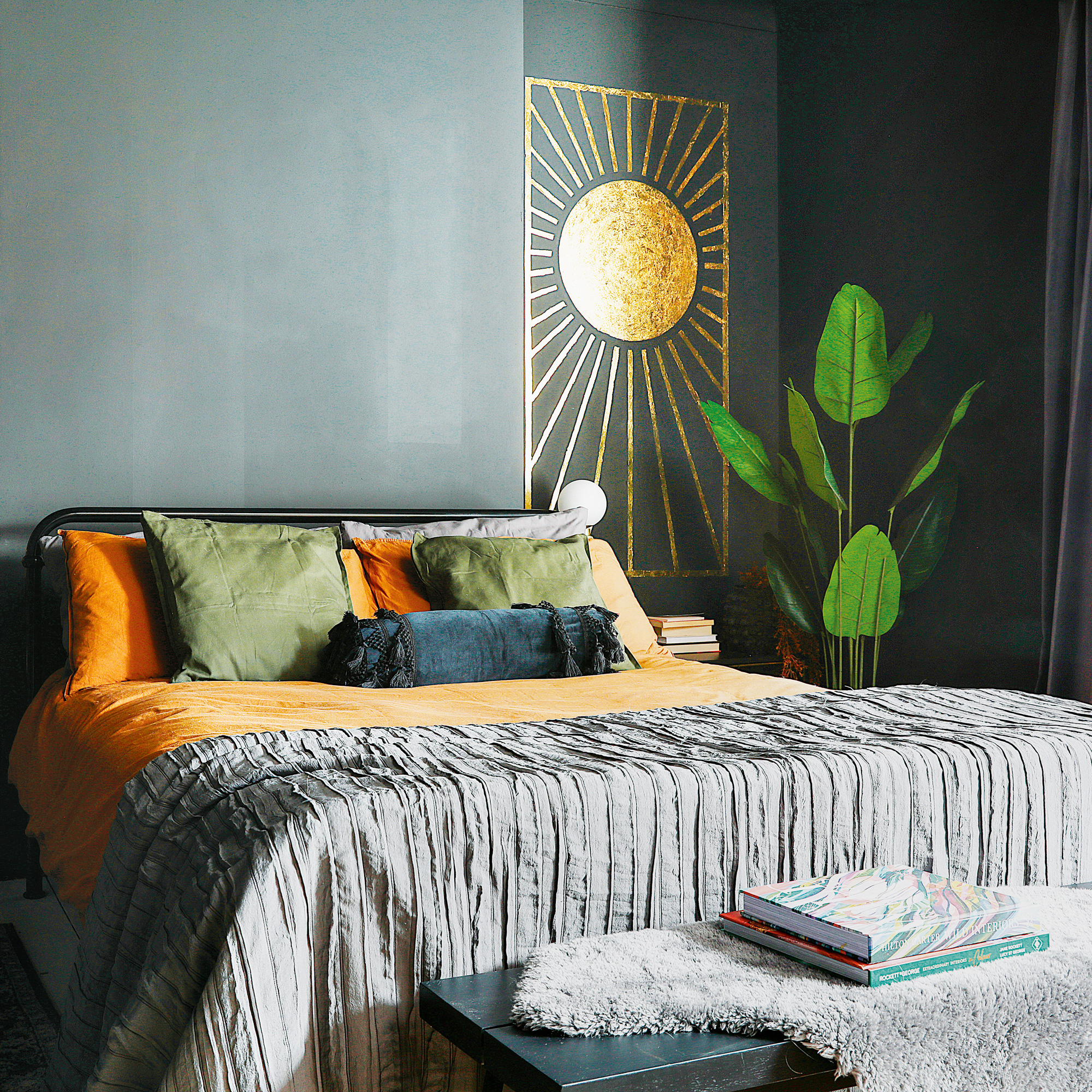
We all know that we should be getting around eight hours of sleep each night but sometimes that’s easier said than done. And one of the issues that can keep us up or make it more difficult to nod off is too much light. Whether that’s during the warmer months, when it stays light later into the evening and is lighter in the mornings, or if your work means that you typically sleep during daylight hours.
When it comes to how to sleep better, a few simple changes can make a big difference. A dark bedroom can certainly promote a sense of calm and relaxation, making it easier to drift off to sleep and stay asleep throughout the night. But how exactly do you go about achieving a darker bedroom? Here’s everything you need to know.
Does a dark bedroom help you sleep?
It’s a resounding yes from the experts. And there’s some science behind it too. ‘Firstly, our circadian rhythm responds to light in a big way, it’s one of the key signs to our internal clock that it’s time to be awake. This is why things like artificial light from our phones, computers, and TV can impact our sleep quality if we’re exposed to them too close to bedtime,’ explains Time4Sleep’s resident Sleep Expert, Dr. Hana Patel.
‘Secondly, darkness stimulates our pineal gland which produces the sleep hormone, melatonin. Light exposure can stop that process and have a negative effect on sleep.’ So, there’s a reason why it’s paramount for your bedroom to be as dark as possible.
How to make your bedroom darker for better sleep
If you’re wondering how to get your sleep schedule back on track, keep reading to see what the experts recommend to turn your bedroom into the perfect environment to catch some z’s.
1. Consider your window dressings
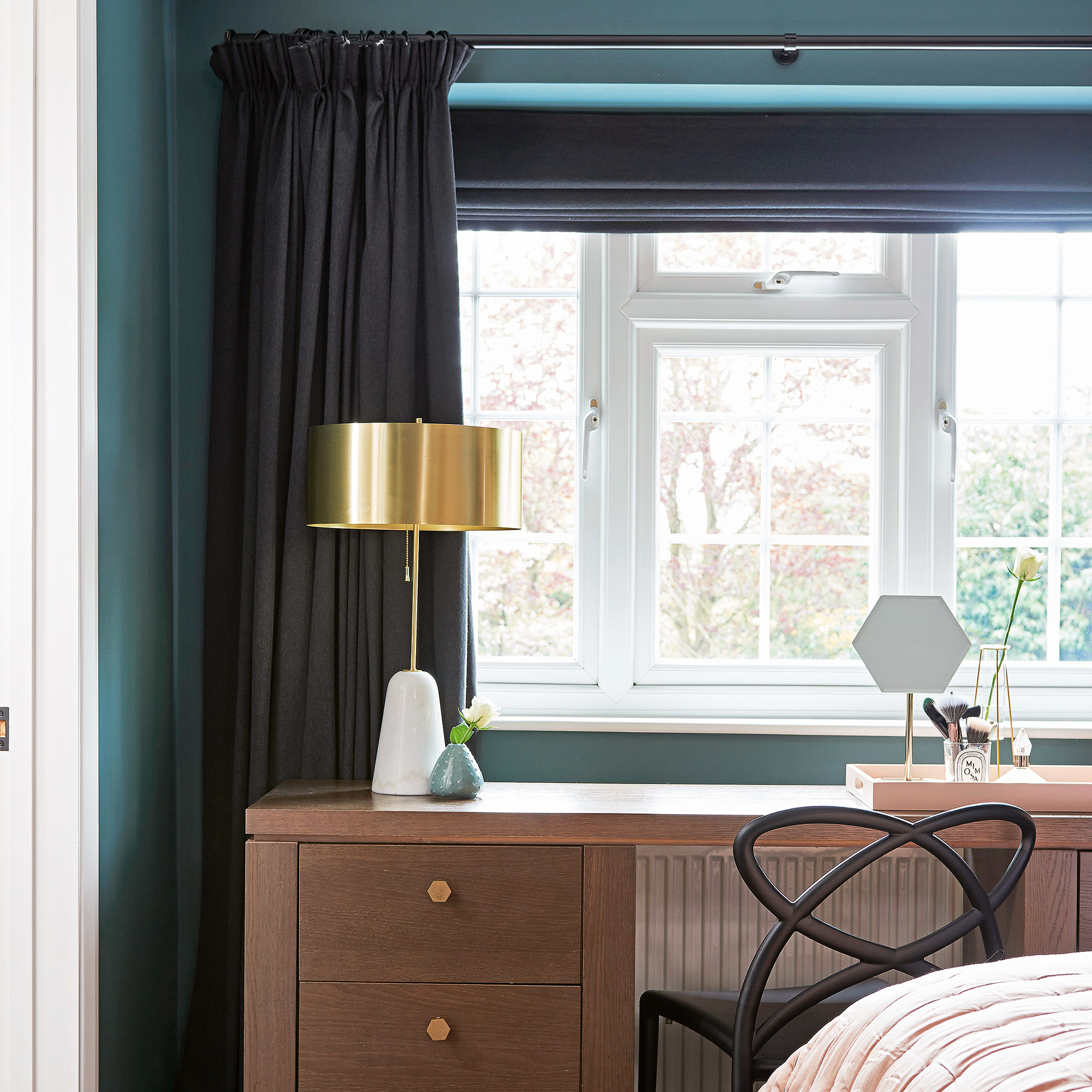
Obviously closing your blinds and curtains will make any room darker but it’s important to consider how you use your window dressings in your bedroom to set you up for a good night’s sleep. This is one of the best bedroom design tips for better sleep.
‘Whilst blackout blinds and curtains can be used as stand-alone products, I’d always recommend layering both for maximum light reduction – and a super luxe-looking window,’ says 247 Blinds and 247 Curtains’ Product Specialist, Helen O’Connor.
‘The most important thing when choosing bedroom blinds is to prioritise made-to-measure options, ensuring a perfect fit without the risk of any light showing through the gaps.’ Using a combination of window dressings, instead of just one, can make a significant difference to the amount of light that can get through.
2. Seal any gaps and cracks
Even if you have blackout curtains or blinds, there are still some spaces where light can sneak in. Start by inspecting ‘your windows, doors, and curtains for any openings that may be allowing light to seep in and use weather stripping or caulking to seal them,’ instructs Alison Jones, Sleep Expert at Sealy UK.
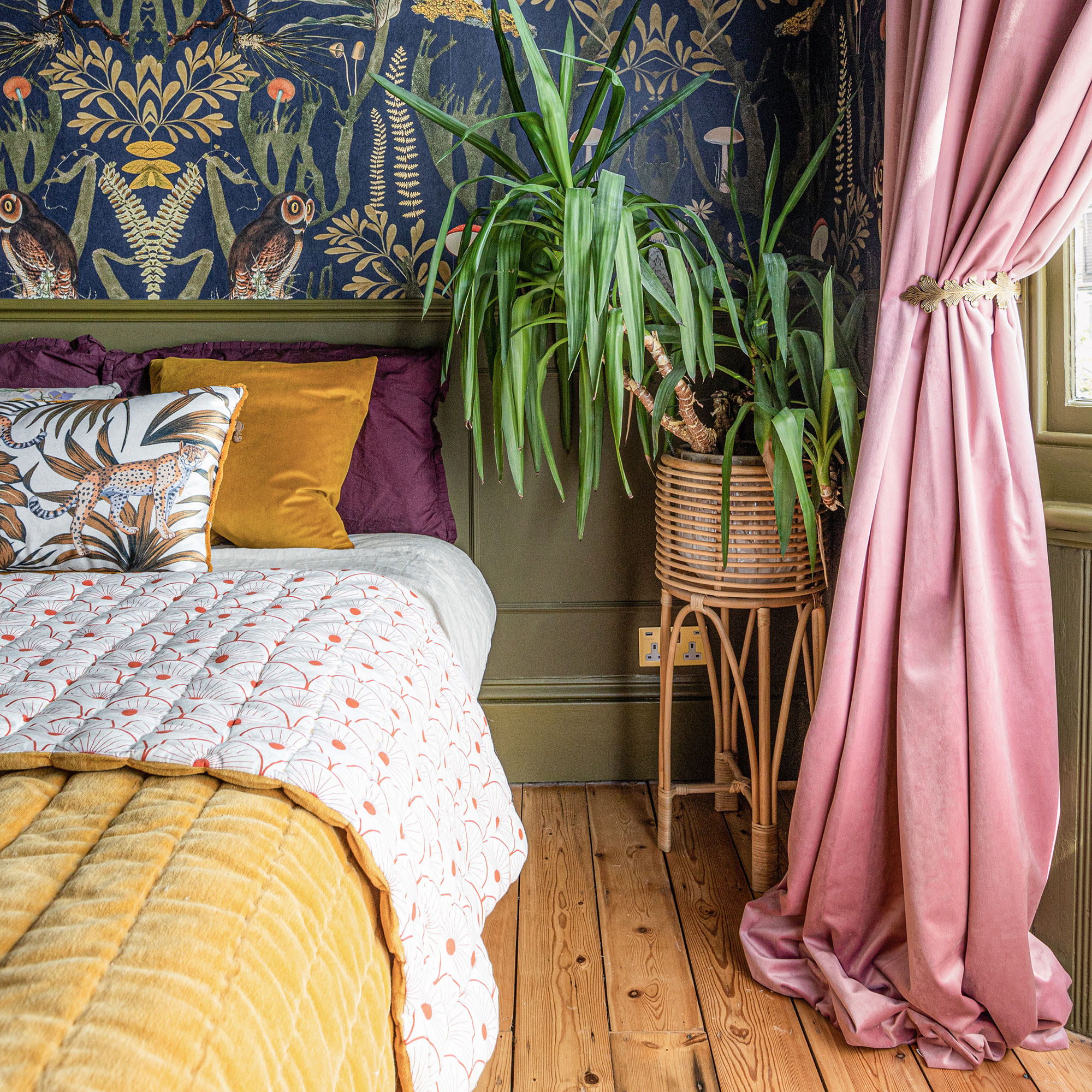
3. Try blackout film
If you’re looking for an alternative to blackout blinds and curtains, you might want to consider a blackout film. ‘This temporary adhesive film can be applied directly to windows for ultimate darkness,’ reveals Allan Reid, Home Expert and Founder of Art Windows & Doors. It also adds privacy, making it even more suitable for bedrooms located at ground-level or looking out onto a busy street.
4. Illuminate with intention
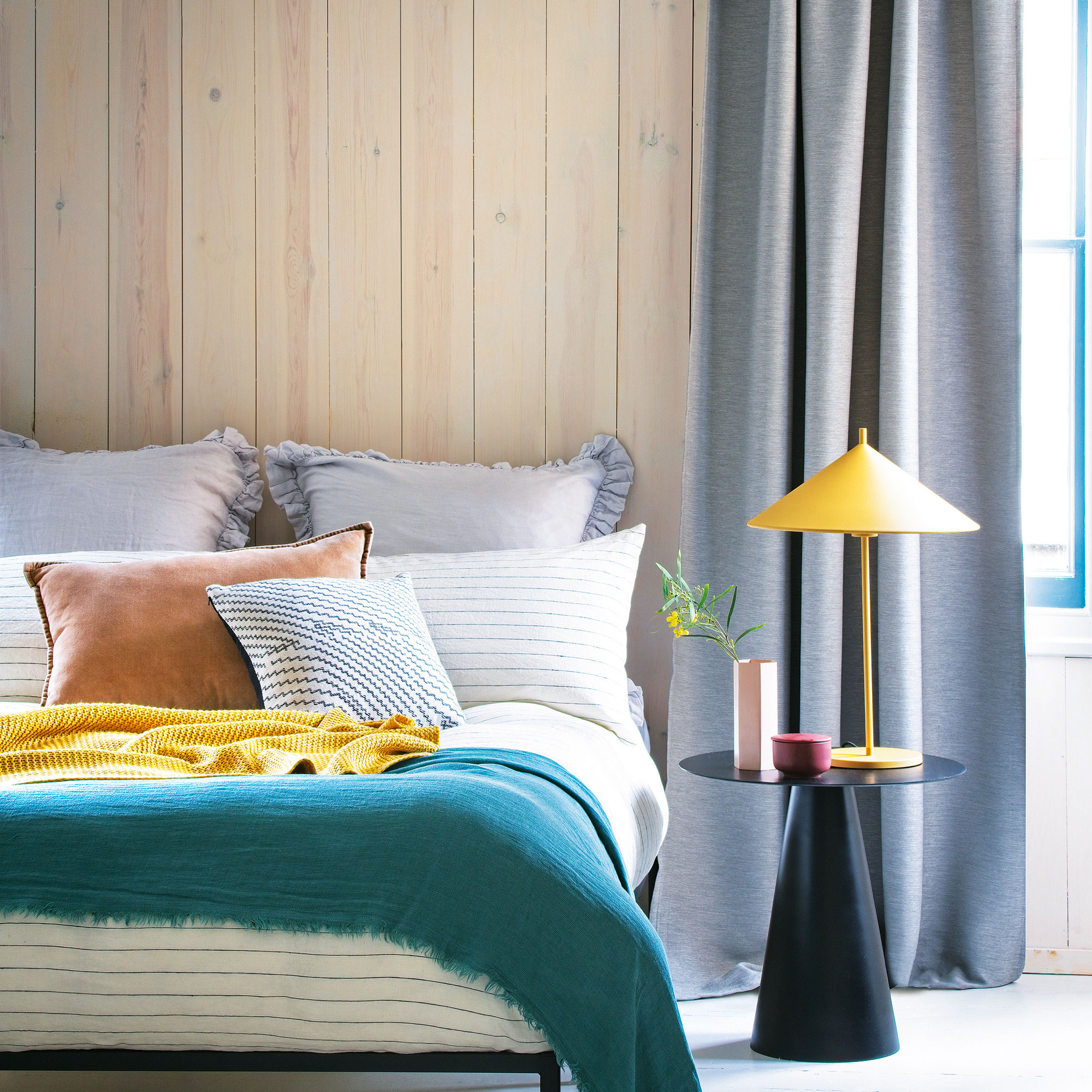
‘The way you light your bedroom can make or break your sleep schedule,’ according to Swoon’s Senior Designer and Interior Expert, Sam Greig. And we have to agree. Essentially, for your bedroom lighting ideas you want to ‘say hello to warm, inviting bulbs that cast a cosy glow, replacing harsh blue or white-toned fluorescents,’ Sam continues.
Try dimmable lights or a bedside table lamp with a warm glow to help illuminate your bedroom when you need to, but still allow it to remain dark enough to help you doze off soon thereafter.
5. Utilise room dividers
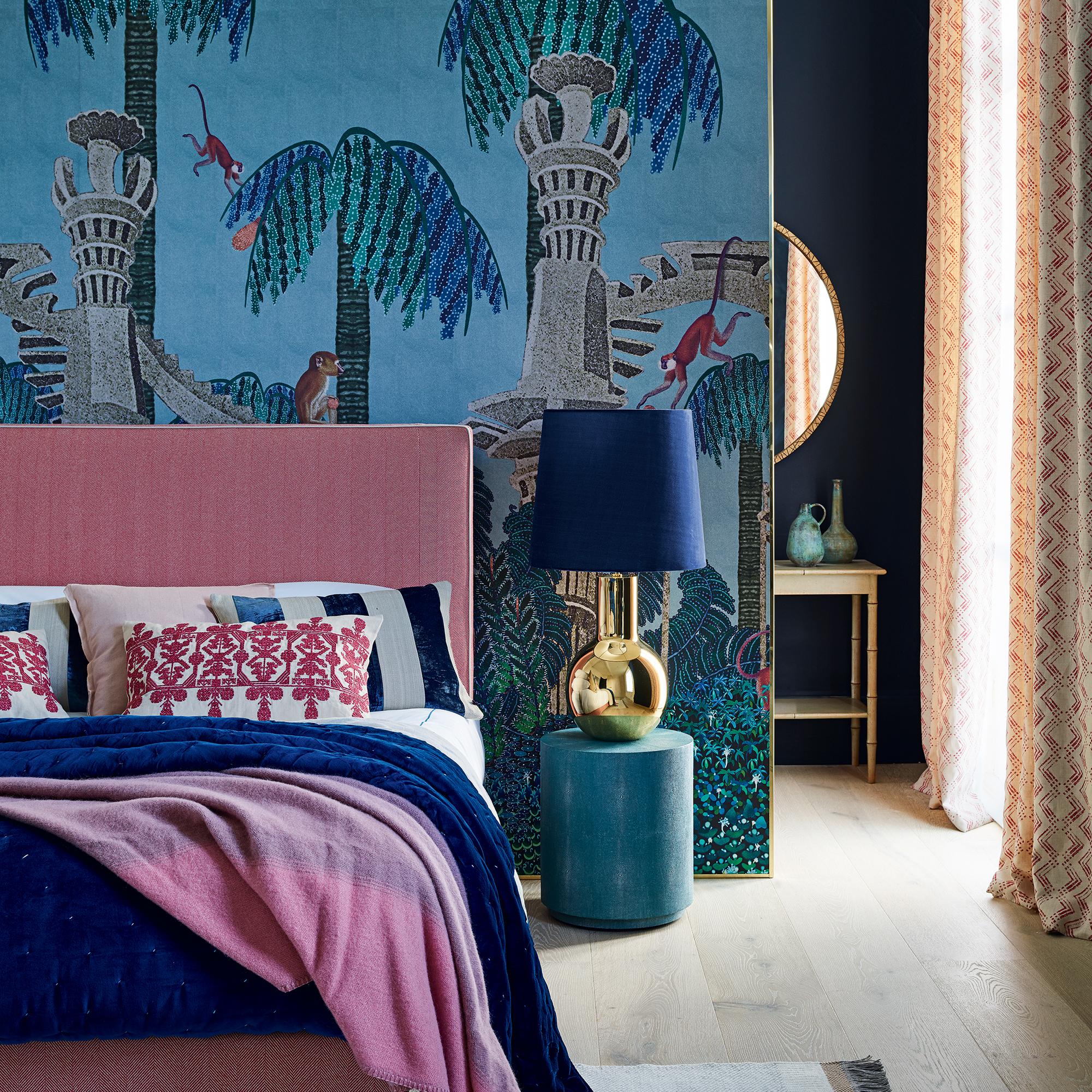
Room dividers can have a number of benefits and ‘strategically placed room dividers, whether solid, translucent, or perforated, can block light from specific areas of your room, creating a personalised sleep haven,’ Allan admits.
You’ll want to place yours in a position that blocks out natural light at certain points of the day and into the evening. An alternative is using curtains to divide up your bedroom and create a cocooned space.
6. Avoid vibrant colours
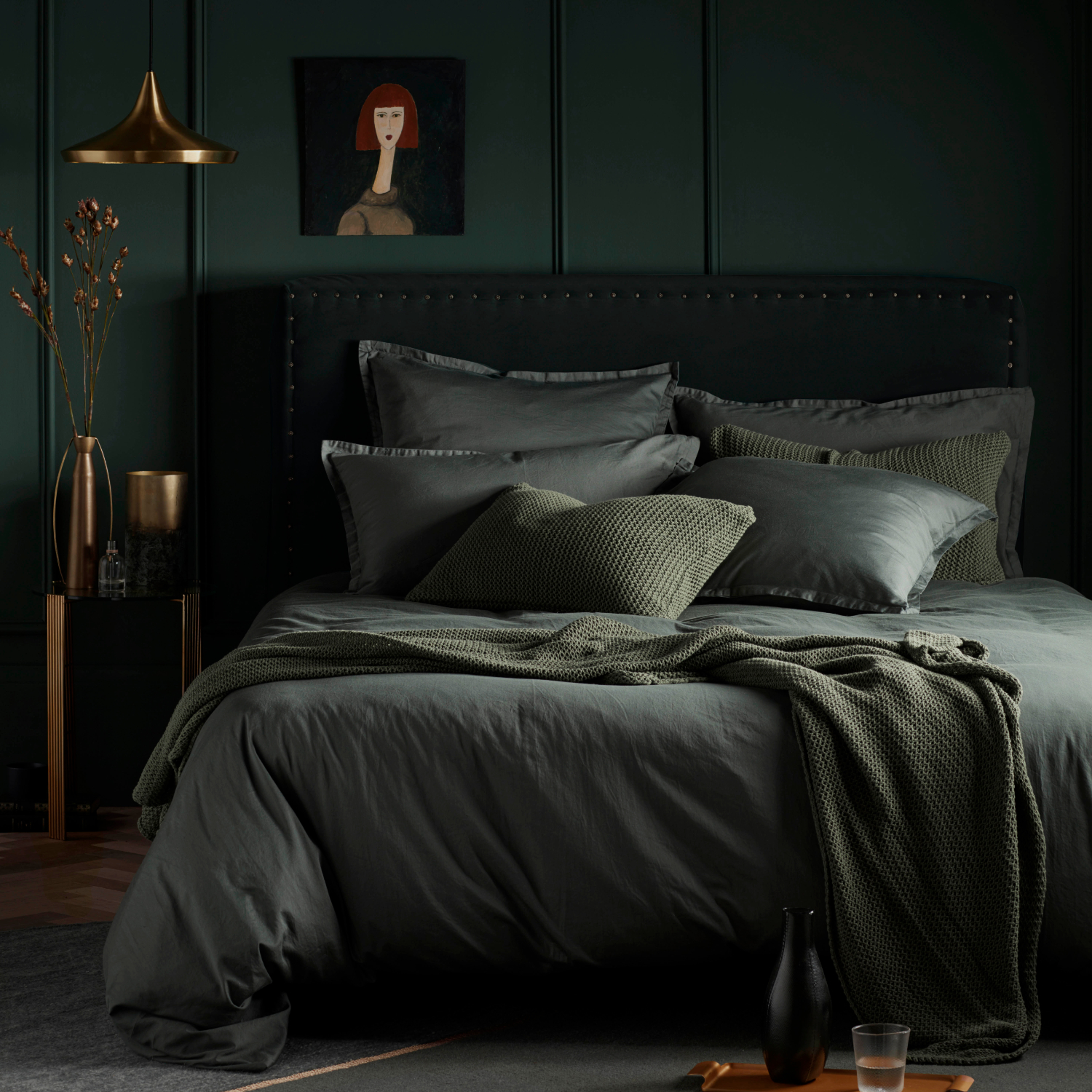
While certain bedroom colour ideas can create a peaceful and calming environment, others can have the opposite effect. ‘Anything overly vibrant is bound to be too stimulating for a sleep environment, so avoid bright reds, oranges, purples and neons for a start,’ declares Melissa Denham, Interior Design Expert at Hammonds Furniture.
‘Red is especially best left out of the room because it is often associated with danger or anger – the last two emotions you want to experience as you try to get some shuteye.’
‘When looking to incorporate darker colours into your bedroom décor, opt for deep shades like charcoal, navy blue, forest green, or chocolate brown,’ admits furn.com’s Room Styling Expert, Suzi Samaddar. ‘These colours absorb light, whilst also creating a sense of warmth and comfort.’
7. Think about velvet furnishings

‘Creating a dark, cosy ambiance in a bedroom doesn't always require paint,’ according to Brand McKenzie’s Co-founder, Kerry McKenzie. ‘Incorporating curtains, cushions, and bed linens in dark, rich colours can significantly contribute to the darkness of the room.
'For an extra touch of luxury and comfort, opt for fabrics like velvet. Velvet not only has a plush feel but also has a deep colour saturation that can intensify the darkness in the room.’
8. Switch off electrical devices
How annoying is it when you’ve switched off all your bedroom lights only for a light from an electrical device to still be glowing brightly. Not only is there the hidden cost of not switching off household gadgets but ‘the high-level blue light emitted from our mobile phones, laptops, televisions and other electronic devices confuses our natural circadian rhythms, causing us to wake up, when nature wants us to sleep and recharge,’ warns Chris Tattersall, Sleep Expert and MD of Woolroom.
If you can, try to switch off these devices at least an hour before you plan to go to sleep. While other devices, that you might want to keep on standby but which still emit a light, can even be covered with some tape to stop them from bothering you.
9. Reconsider mirrors
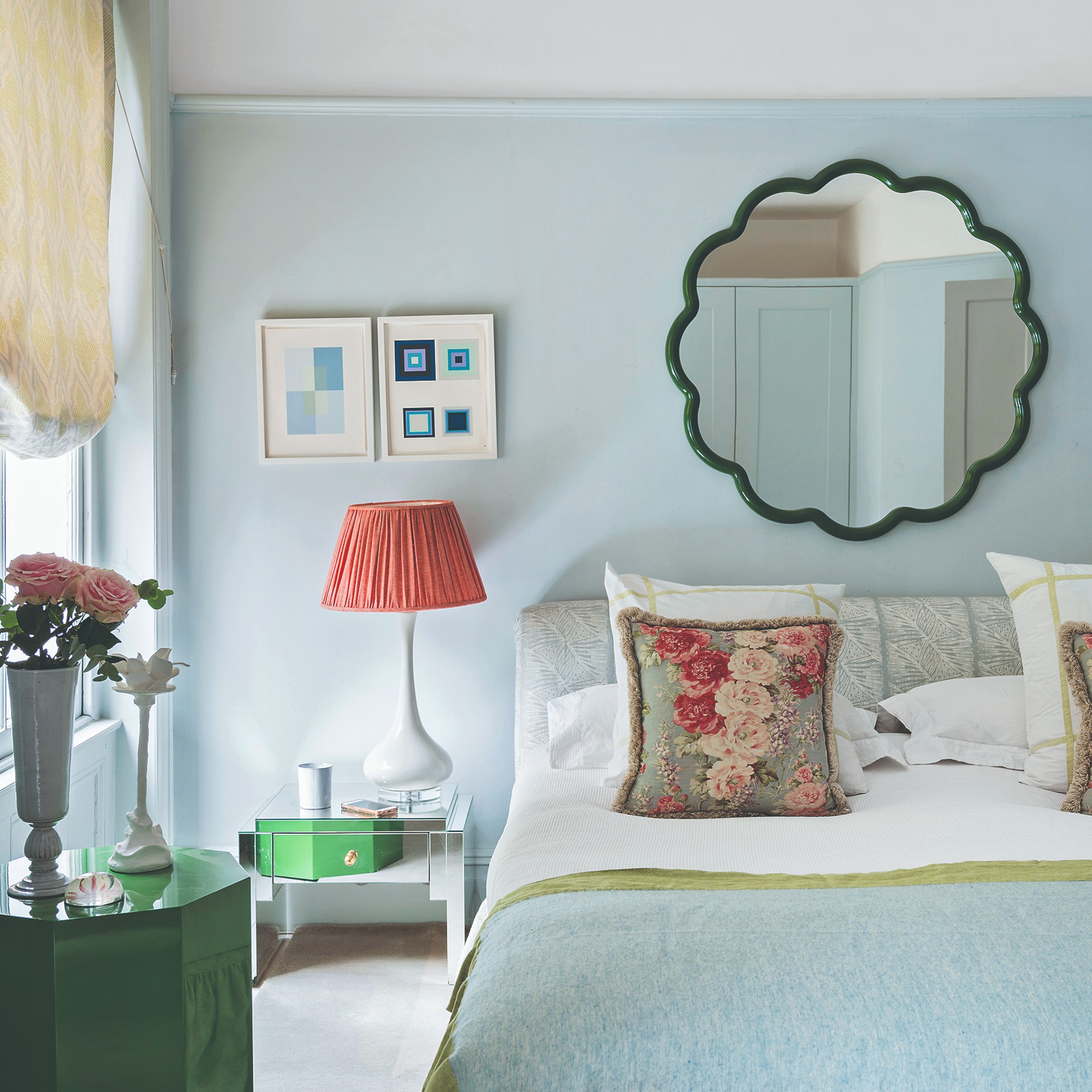
We love using a bedroom mirror idea to make a room or space appear larger but they can reflect light from your windows or other sources, which isn’t ideal if you’re looking to make your bedroom darker before you get ready for bed.
Essentially, you’ll want to ‘minimise reflective surfaces, like mirrors opposite windows, as they can bounce light around the room,’ Allan explains.
FAQs
How do I sleep better when it’s still light outside?
While we always welcome the return of the warmer months, it does mean that it will be lighter for longer in the evenings and lighter earlier in the morning. And if you’re a shift worker or routinely work night shifts, you’ll no doubt be trying to catch up on your sleep during the daytime.
In addition to blackout curtains and blinds, one of the easiest and most affordable ways to sleep better when it’s still light outside is using a sleep mask. A good quality silk eye mask will not only help to block out light but it can also reduce any tugging on that delicate part of your face as you toss and turn during the night.
These blackout curtains have been reviewed 58,715 and racked up a 4.5 star rating, impressive credentials with prices starting at £11 for a pair.
This comfy sleep mask wraps completely around your eyes and head to block out any light.
If you're a renter these no drill stick on blackout blinds are a great solution to darken a room and not loose your deposit.
Can a bedroom be too dark?
‘When it comes to sleep, probably not. But when it comes to waking up in the morning, it could have an impact,’ suggests Dr. Hana. ‘Light is a signal to our brains to wake up, therefore brightness in the morning will help you feel more energised and ready to take on the day.’
If you struggle to wake up on dark mornings, investing in a sunrise alarm clock can help with this. ‘It will slowly start to fill the room with light in the minutes before you wake and remove the need for you to leave a curtain open to spark your circadian rhythm,’ Dr. Hana continues.
On the other hand, ‘while complete darkness is ideal for most people at night, some may feel uncomfortable in pitch-black environments,’ Alison says. In this case, subtle ambient lighting options such as dimmable and night lights will help you safely manoeuvre around your bedroom, if you happen to frequently get up during the middle of the night.
You’ll want to ‘experiment to find your ideal darkness level, striking a balance between sleep-promoting darkness and enough light for safety and a smooth morning awakening,’ Allan adds.







